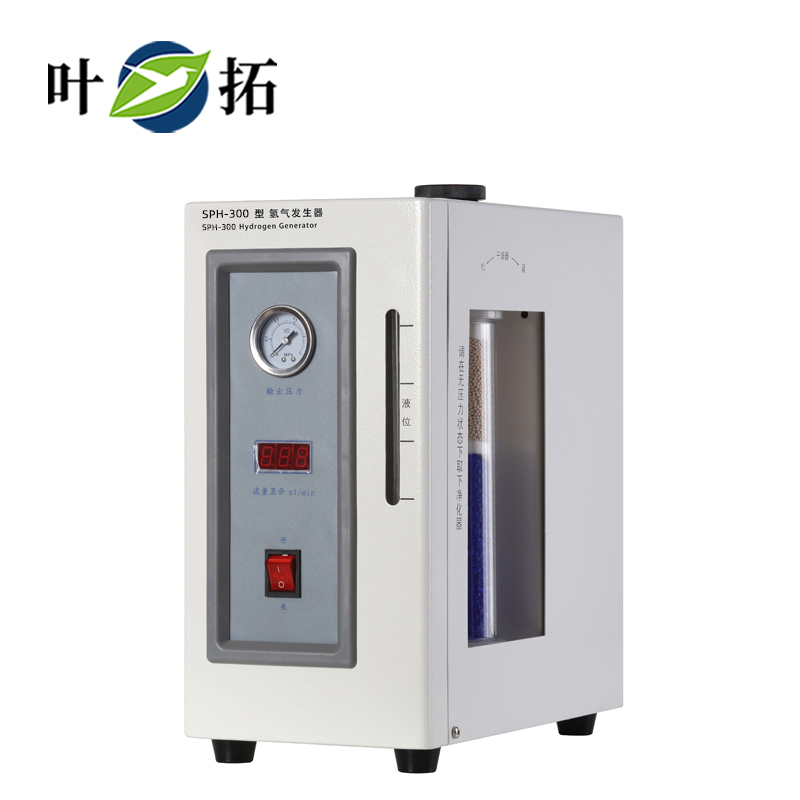The Shanghai Yetuo hydrogen generator is a device used to generate hydrogen gas (H2), and its working principle is based on the reaction of electrolyzed water. The following is the working principle and function of a hydrogen generator:
working principle:
The working principle of a hydrogen generator mainly involves water electrolysis reaction. Usually, water (H2O) is composed of hydrogen (H2) and oxygen (O2), and the process of electrolyzing water decomposes water into hydrogen and oxygen. The specific reaction equation is as follows:
2H2O (liquid) ->2H2 (gas)+O2 (gas)
In a hydrogen generator, an electrolytic cell is generally used, which contains two electrodes: an anode and a cathode. These two electrodes are immersed in an electrolyte solution, typically an alkaline (such as sodium hydroxide) or acidic (such as sulfuric acid) solution.
When an external power source (usually a DC power source) is connected to the electrodes of the electrolytic cell, the following two reactions occur:
On the cathode, water molecules (H2O) accept electrons and are reduced to hydrogen gas (H2):
2H2O (liquid)+2 electrons ->H2 (gas)+2 hydroxide ions (2OH -)
On the anode, water molecules lose electrons and oxygen (O2) is released:
2H2O (liquid) ->O2 (gas)+4 hydrogen ions (4H+)+4 electrons
These reactions decompose water into hydrogen and oxygen, with hydrogen being discharged from the gas outlet of the electrolytic cell and oxygen being discharged from the gas outlet of the electrolytic cell.
effect:
The main function of a hydrogen generator is to generate high-purity hydrogen gas. It has a wide range of applications in various laboratories and industrial settings, including but not limited to:
Laboratory applications: Used for chemical experiments, sample preparation, and reducing agents in reaction chambers.
Industrial applications: used in industrial processes such as metal welding, semiconductor manufacturing, chemical production, etc. Hydrogen is also used as fuel for fuel cells and hydrogen vehicles.
Energy storage: Hydrogen is considered one of the storage forms of renewable energy, and hydrogen generators are used to convert electrical energy into hydrogen to generate electricity when needed.
Laboratories and research: In laboratories and research fields, hydrogen can be used to study the chemical properties of hydrogen, hydrogen energy technology, and related research areas.


 Alibaba Store
Alibaba Store Tmall Store
Tmall Store Jingdong Sstore
Jingdong Sstore







